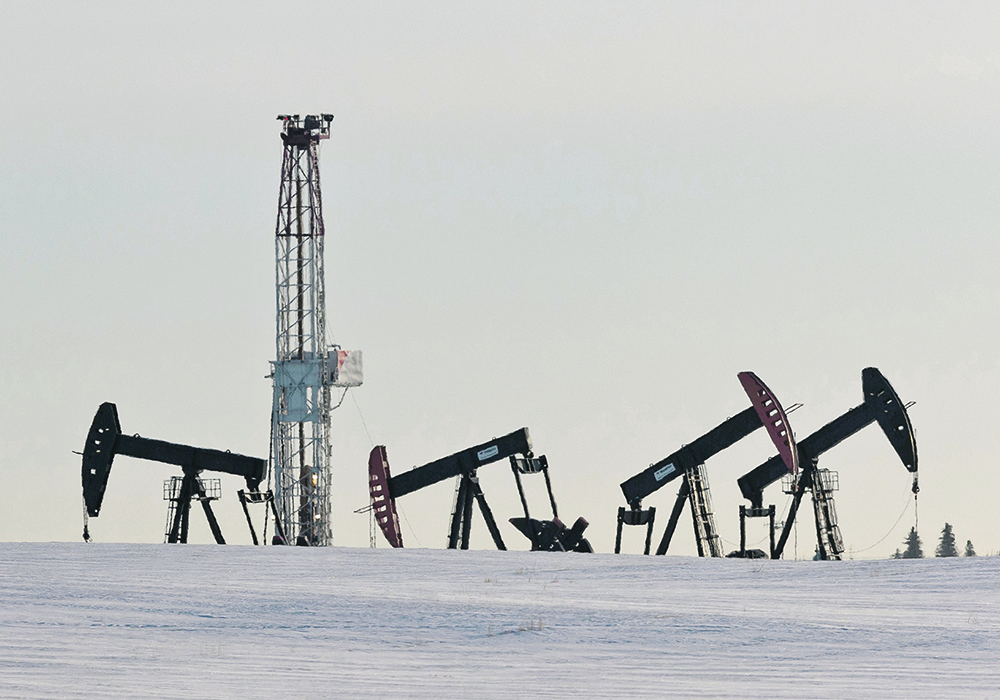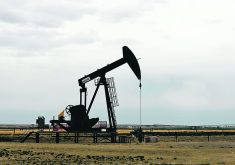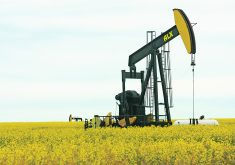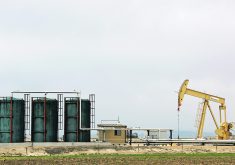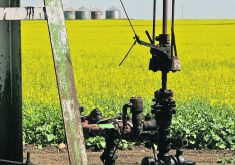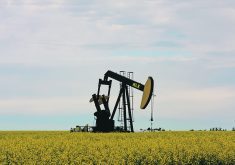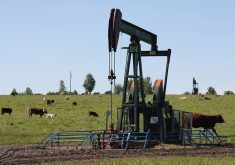Rural municipalities are pleased with new measures, but government admits only part of what’s owed is recoverable
A ministerial order will likely be able to retrieve only part of the $268.5 million in property taxes collectively owed to Alberta’s rural municipalities by oil and gas companies.
About $76 million is potentially recoverable, with the rest owed by defunct companies, said Municipal Affairs Minister Rebecca Schulz.
She spoke March 21 at the spring convention of the Rural Municipalities of Alberta in Edmonton.
Companies must now provide evidence to the Alberta Energy Regulator that they have paid their property taxes if they want to receive new licences, or buy or sell existing licences.
Read Also

Environmental farm group has Ottawa’s attention
In 2021, Farmers for Climate Solutions published a report on how Canada should reduce emissions from agriculture. Not long after, the federal government implemented most of the recommendations in the report.
Companies must confirm their unpaid municipal taxes do not surpass a maximum threshold, or that they have a repayment agreement in place, said a provincial statement.
“The maximum threshold will be determined after reviewing the AER’s analysis of current licensee information related to unpaid municipal taxes, and in consultation with Municipal Affairs and Energy.”
An annual list of companies whose unpaid taxes exceed the threshold will be created by both ministries, allowing the AER to target delinquent companies to provide proof of tax payment.
“Now, we don’t want to scare away investment and create red tape for the good actors in our energy industry,” said Schulz. “But this strategic and surgical approach is going to allow us to target again those bad actors while maintaining an attractive regulatory environment for investors and those companies.”
Energy Minister Pete Guthrie and Schulz have also directly contacted delinquent companies to remind them to pay their taxes, she said.
“Ladies and gentlemen, we in Alberta, we pay what we owe, and now it is time to pay up,” Schulz said.
She estimated about $48 million of the $76 million is already in payment plans.
“You’ve got another $28 million that is attributed to operating companies, and that, I think, is why I’m optimistic… but nonpayment of taxes is completely unacceptable and cannot continue.”
The devil is always in the details, said Paul McLauchlin, president of the RMA.
“But I’m pretty happy about it because at least we’re going to start having the discussion around data,” he said during an interview March 21.
“And what had happened, because it wasn’t required to pay your taxes, these companies would just drive it into the ground and not pay their taxes year over year, and then eventually go bankrupt. And you’re sitting there with $5, $6, $7 million of unpaid taxes that happened all over the province.”
The crisis means rural residents such as farmers must shoulder the taxes to fund essential services such as infrastructure. Rural municipalities are responsible for about 60 percent of the bridges and more than 70 percent of the roads in Alberta, which are relied on by producers to bring their goods to market.
A survey released March 7 by the RMA found its members were owed about $268.5 million as of Dec. 31, 2022, up 6.1 percent from about $253 million in 2021. However, it was 231.5 percent higher compared to 2018 when about $81 million was owed, with rural municipalities currently facing an average shortfall of nearly $4 million.
About eight municipalities in eastern Alberta are facing serious financial distress because of unpaid taxes, said McLauchlin in an earlier interview. “Our reality as it stands right now is if this continues on the trajectory and growth that it is right now, this would be a serious existential crisis for rural municipal leaders.”
A survey in 2022 of unpaid oil and gas property taxes by the provincial government found $220 million had been reported by municipalities, with tax arrears of $130 million including penalties and interest. The remaining $90 million was in cancellations, said the provincial statement.
“Many of these taxes will not be recoverable outside insolvency proceedings because they are owed by companies no longer operating or because the taxes have already been written off by municipalities, or both.”


